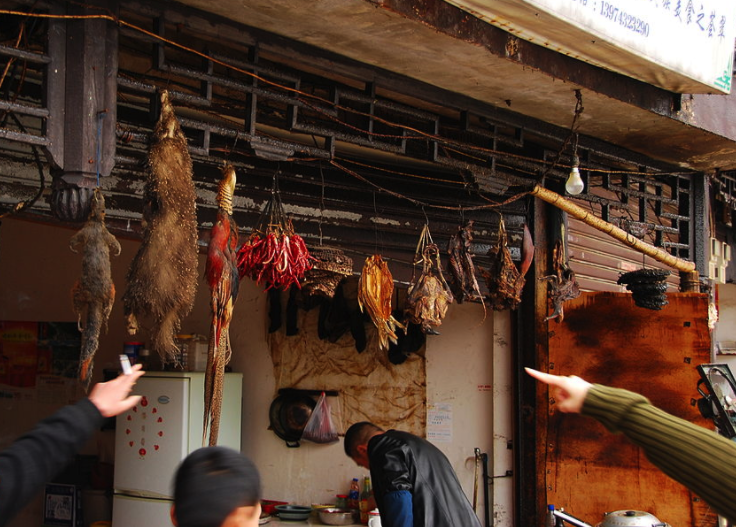The Chinese government has released a list of animals that can be farmed for meat and fur. As the coronavirus crisis brought the entire world to a halt, there was widespread criticism over the type of animals sold in the wet markets in China. Now, the Ministry of Agriculture and Rural Affairs has published a draft list of animals that can be farmed. The information is available online for people to comment on.
The draft list includes pigs, cattle, sheep, goats, rabbits and chickens, which are widely farmed in the country. China has also imposed several restrictions on the kind of animals that can be sold.
There have been widespread assumptions about the wet markets in China and several other Asian countries. A wet market is a place where meat and grocery are fresh, that is, straight from the farm. These markets have come in for worldwide condemnation and several Asian countries have been asked to close them down. In the Wuhan market, it is believed that wild animals were slaughtered for food and medicines.

Risk of viruses
The sale of live animals in the wet markets can create the risk of the dangerous viruses being cultivated. According to experts, the closed environment and potentially unsanitary conditions while rearing animals, which include wild and rare animals, can make it a petri dish for viruses like the novel coronavirus and SARS. In the new list, there is a special livestock list with reindeer, alpacas, guinea fowls, ostriches, emus, mink, silver fox, arctic fox, and raccoon, which are brought in for fur and meat.
The ministry has also designated dogs as a companion animal. Dogs are slaughtered in China for their meat. This has prompted a lot of non-governmental organisations to request the authorities to change the practices in the wet markets. The 2003 SARS outbreak was said to have also originated from wild animals and some linkages to civet cats in Guangdong province were made by experts.
Since pangolins and bats are illegally brought and sold, they have not been included in the list. They are also not captively brought and bred making the list a little confusing while addressing the origins of the new coronavirus.
Although the list will not translate to the law, it will be confirmed by May. Illegal sale of wild animals has also not been addressed in the draft list. There are constant calls to stop the trade in wildlife meat permanently. Many countries such as Indonesia and even African countries like Nigeria still continue the sale of animals such as pangolins and bats.
Not the people but the traders
The sale of wildlife meat and fur is closely associated with demand. Some experts believe that it is not the consumers but the traders who are to be blamed for the sale of these products. There have been no reports about the Chinese consumers of wildlife meat requesting reopening of the wildlife markets, say some of the critics.
Some of the wet markets are not just markets filled with animals ready to be slaughtered but they are stocked with fresh produce of vegetables and fruits directly from the market. They are affordable as well. The wet markets sell fish and other meat. It is called "wet market" because the floors are wet as vendors wash the meat, fish or vegetables.
For most people in Asia and in some other parts of the world, these markets are sources of fresh produce. The wet markets are also slowly losing the fight to stay afloat because of supermarkets. Previously, people used to go to such places to obtain fresh organic produce for food.









